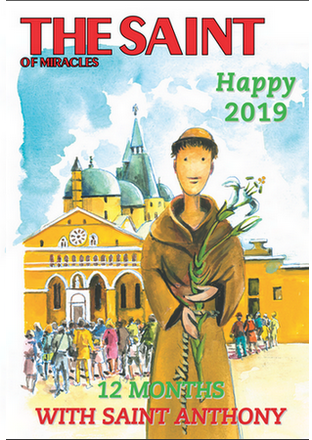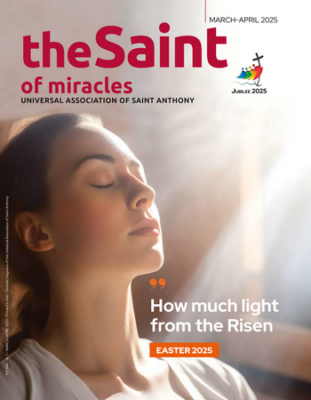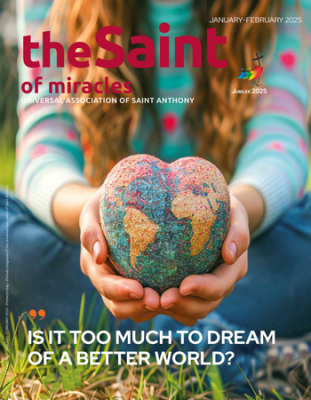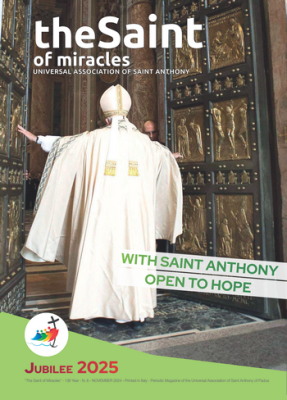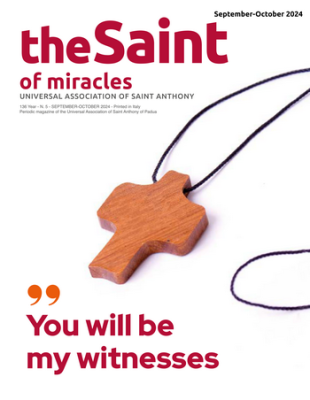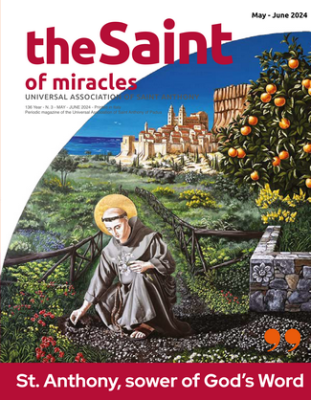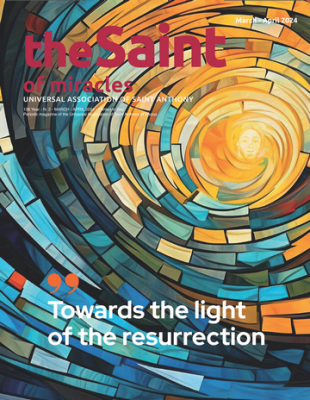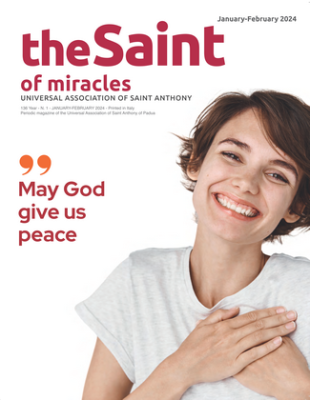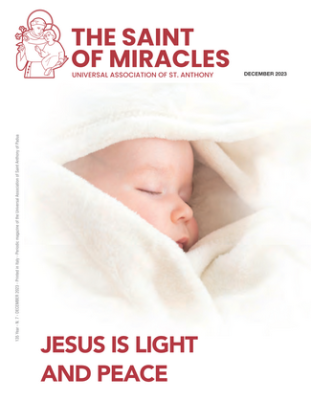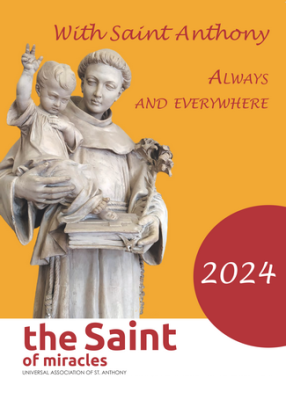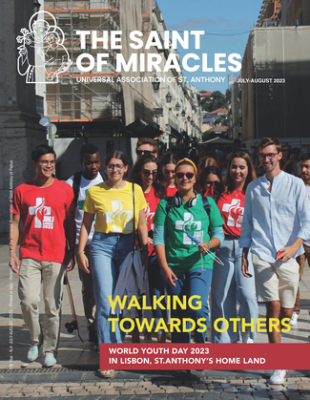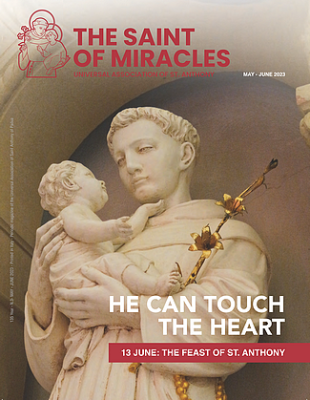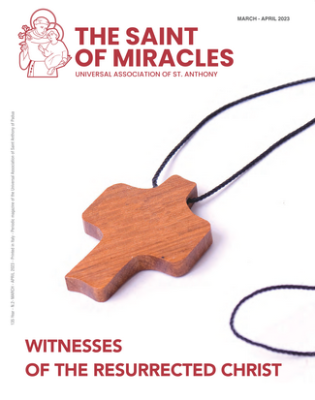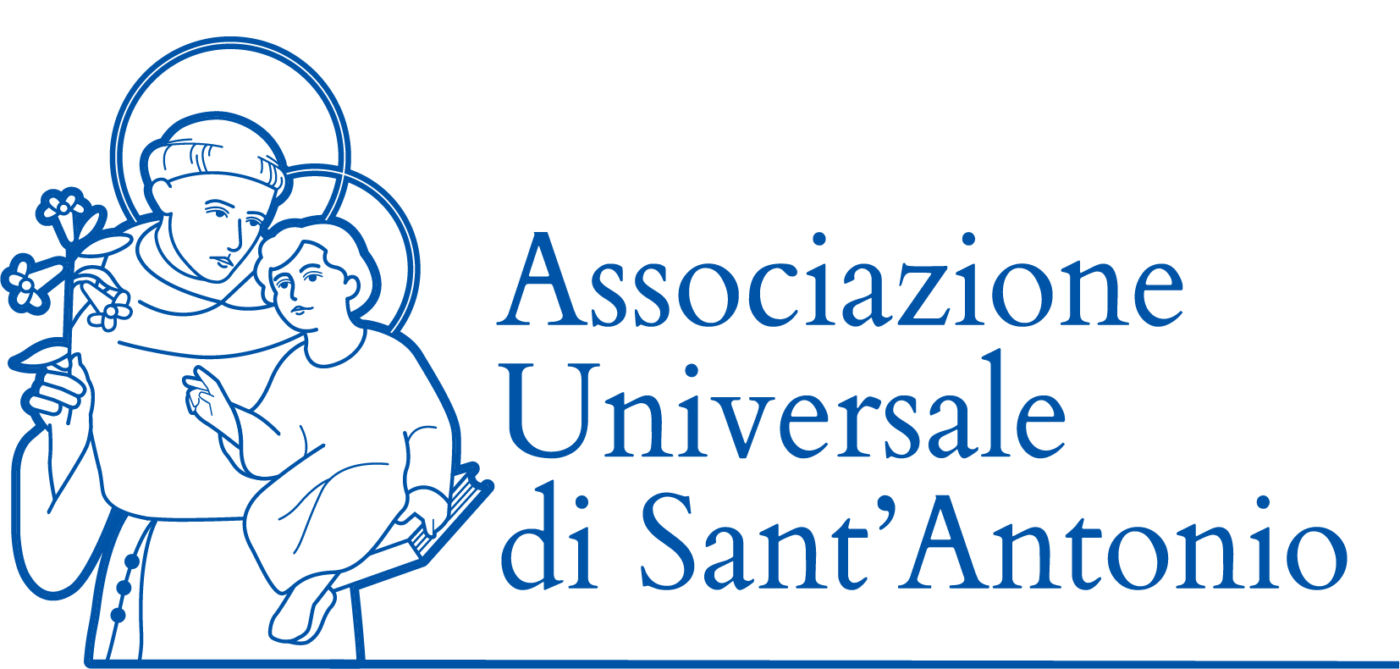Year 130 - November 2018Find out more
Can you tell me about brother Anthony?
Editorial Staff
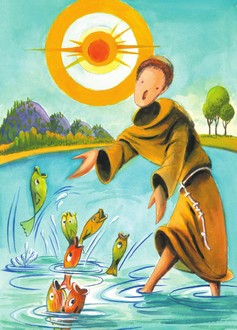 Saint Anthony of Padua is one of the figures most dear to popular devotion. If he lived today he would certainly have his facebook or twitter page followed by millions and millions of followers and with many "likes"! Many... but not all, because the poor and simple people liked very much his attitude, while the rich and powerful do not, though they often feared him.
Saint Anthony of Padua is one of the figures most dear to popular devotion. If he lived today he would certainly have his facebook or twitter page followed by millions and millions of followers and with many "likes"! Many... but not all, because the poor and simple people liked very much his attitude, while the rich and powerful do not, though they often feared him.
He was born in Lisbon in the summer of 1195 (perhaps 15 August) from a noble family: his real name wss Fernando di Buglione, and for him his parents dreamed of a career as a knight. Anthony also loved to dream big and, after entering the Augustinian monastery to become "great" in the study of the Word of God, in the summer of 1220 (at 25 years old) he quivered with passion when he saw the remains of the first five Franciscan martyrs beheaded in Morocco, where they had gone to preach.
"Infected" by their story, he embraced the Franciscan habit dreaming of leaving for Africa as a missionary.
But his desire did not come true because it was blocked first by a malaria fever and then by a storm that scuppered his ship in Sicily (April 1221). After he regained his strength, Anthony took part inthe great gathering of Franciscan friars called the "Chapter of Mats", during which he had the opportunity to meet Saint Francis.
In listening to and living the Word, Anthony found the source of true joy and dreamed of communicating it and spreading it to every man. To carry out this task, he wandered long on foot to the cities of the north (he also arrived in France). Among the many visits he preferred Padua and, even if he did not spend more than a year and a half in total, this became his adopted city. Here he preached attracting large crowds of believers, standed without hesitation on the side of the weak and the poor, he fiercely condemned usury. He was not even afraid to meet the ferocious Ezzelino da Romano, even if his requests for clemency in favour of the prisoners were in vain. He also captured the faithful with original insights and wonders: as when the fish came to listen to him, unlike a group of busy men; or when in front of the Eucharist a hungry mule was hidden; or when he showed that the heart of a mean man was actually attached to money rather than to affection!
In May 1231 Anthony felt his strength diminished as a result of his illness (his body was weighed down with liquid) and the labors he had to face. He retired to rest in Camposampiero (about 20 km from Padua) as a guest of his friend Tiso. On Friday, 13 June, he ordered the friars to be taken to Padua. Placed on a cart pulled by oxen, Anthony died on the outskirts of the city, at the Arcella, after having serenely exclaimed: «I see my Lord!». Because of the many wonders attributed to him immediately after his death, Pope Gregory IX declared him a saint on 30 May of the following year.


 Italiano
Italiano Français
Français